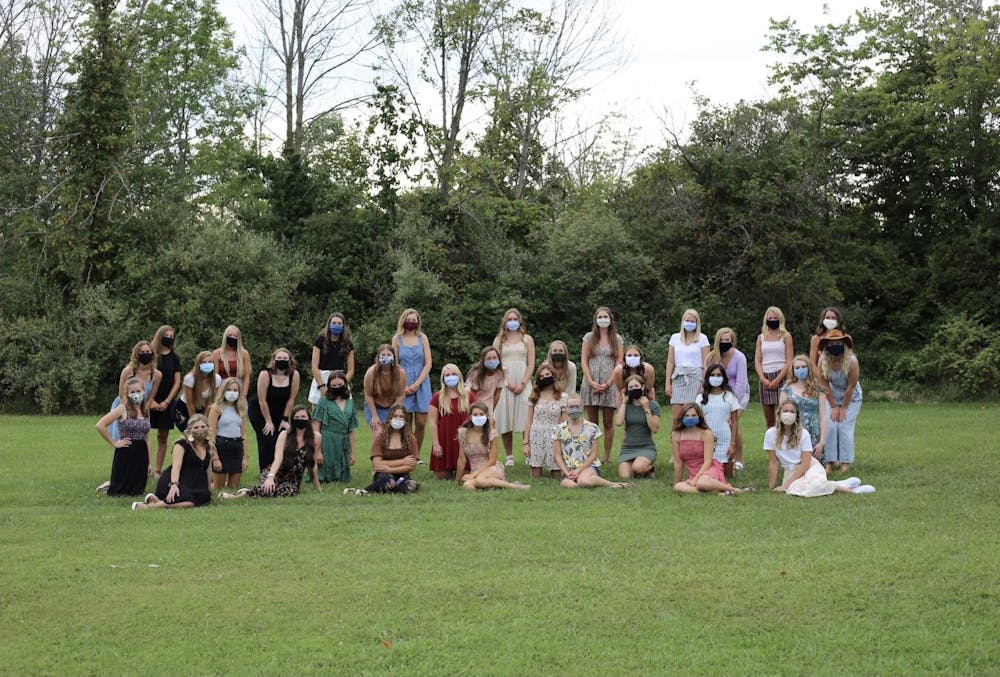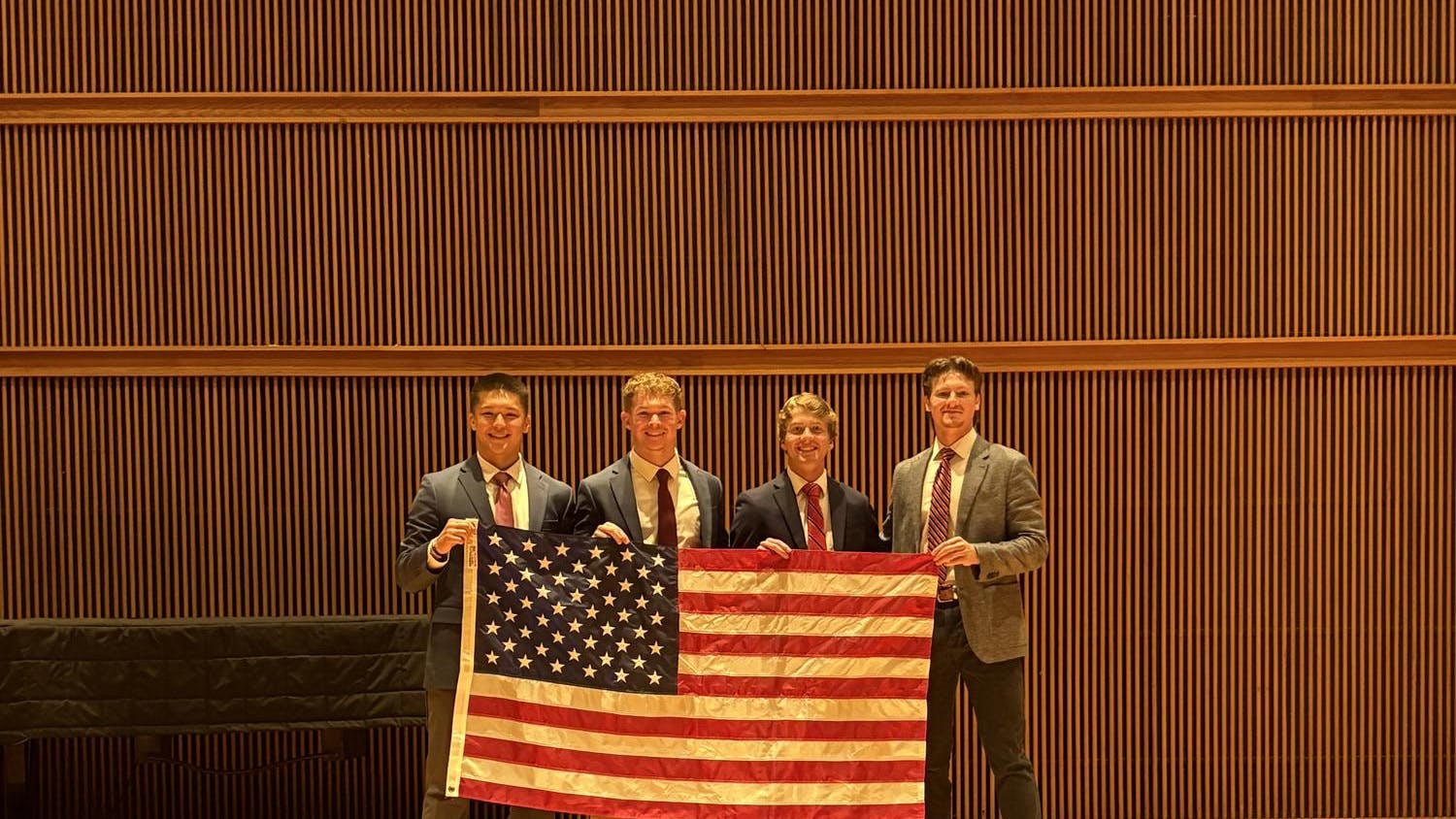It has been approximately 18 months since the world shut down due to COVID-19.
For eight of those months, we wore masks, stayed six feet apart and sanitized often. We saw the numbers of COVID positive cases at Taylor and in Grant County fluctuate. We learned the system for ordering quarantine meals and got used to cotton swabs being shoved up our noses during COVID tests.
By May, we were exhausted and ready for a summer away from masks, close contact lists and calling the COVID hotline at 10 p.m. because your roommate suddenly lost her taste and smell.
And for the most part, things were OK. Then, quickly into the summer, Taylor announced plans to return to “business as usual” in the fall, a vague proposition that meant no COVID restrictions such as masks, social distancing or capacity limits would be in place.
When school started in late August, it appeared to be a close to normal experience like described. Napkin dispensers were back at the Dining Commons tables. Open hours resumed in full swing, all three days of the weekend. Full capacity animated the chapel. Taylor was lively once more.
But the inevitable happened as nearly 2000 students packed into communion chapel and danced bare shoulder to bare shoulder at the Welcome TU the Neighborhood party: COVID cases started to rise.
On Sept. 19, 2020, the seven-day average of COVID cases in Grant County was 1,080. A year later on Sept. 19, 2021, the seven-day average more than tripled to 3,824.
The stats at Taylor reflect this increase as well. An update from the Pandemic Response Team (PeRT) on Sept. 4, 2020, reported only four students and employees in active isolation. About a year later on Sept. 22, 2021, PeRT reported 18 students and two employees in active isolation.
Additionally, Jesse Brown, dean of students, said that the PeRT hotline receives around 20–40 phone calls and 50 emails every day from students requesting information about their COVID situations.
Though there are many factors that contribute to a rise and fall in COVID cases, the lack of initial COVID response safety measures at an institutional level is reflected in these numbers.
Campuses across the country faced similar issues at the beginning of their school years. As cases increased at Liberty University, they implemented a two-week mitigation period where classes were moved online and large gatherings were suspended. Cedarville University similarly introduced stricter COVID protocols and mask mandates following an increase in cases.
While we at the Echo Editorial Board respect Taylor’s swift decisions to try to abate rising COVID cases by re-implementing a mask mandate in gatherings of over 250 people, we believe more can be done.
The root of the problem starts with the members of our institution (staff and students alike) understanding the problem that is on the rise and responding efficiently to it.
In the COVID guidelines for the 2021–2022 school year, the rules for quaratines, close contacts, testing, isolation and the overall flow of procedures changed. Many of these rules became loose and not well executed.
An example of this includes the need to quarantine for those with the vaccine. These changes were briefly outlined in an email, but they were not explained any further. Even Personnel Assistants (PAs) and Discipleship Assistants (DAs) were not briefed on the procedures during training week.
This testifies how little direction was given on how the COVID procedure should flow when even the student leaders were ill informed.
Having little direction on the procedures made it difficult for students to understand how they should respond when COVID cases began to pop up on their wings and in their friend groups. Lack of understanding led to an overflow of calls reaching the COVID hotline, overwhelming the hotline and leading to longer response time.
In the same breath, the problem also falls on the integrity of students and staff.
As cases rise, more people are destined to be put on close contact lists. How we respond to that is crucial.
“It is critical to avoid people and close contact when you are not feeling well,” Brown said. “Staying home, in your room or simply distancing yourself from others is helpful in slowing the spread of COVID. Keeping a mask available is another good step because you do not know when you will encounter someone or someplace that requires / requests a mask.”
However, in dorms across campus, the integrity of students in their reporting has been shaky. Friends avoiding documenting an accurate list of close contacts in order to avoid conflict has been often recurring. People argue if they should be on the list because they don’t want to miss out on wing meals, pick-a-dates and campus-wide events. They fight to not quarantine and later test positive, causing more people to become close contacts.
Is a few days wearing a mask or a few days in a dorm room worth causing several more people to lose out on ten days of class and activities because of a positive COVID test?
We pride ourselves on being a student body that honors intentional community, but how can we hold this claim if we aren’t even following the words of Scripture that call us to “in humility, value others above yourselves,” (Philippians 2:3).
Keeping this in mind, our hope is to stay on campus all year and to keep our community safe. With our current trajectory, we believe the possibility of this is shaky. In hopes to keep this goal, we believe that Taylor, as an institution, needs more safe measures in place to help keep cases down, even if our community has to lose some of its normality again.
Yes, it is inconvenient to carry a mask around at all times, have your face covered during chapel worship or sit 6 feet apart in class. However, it is more inconvenient to see a friend or professor in the hospital on a ventilator, because they caught COVID from an incautious student or colleague.
Taylor administration, we thank you for taking adaptive measures to make our community safer. However, we urge you to continue communicating procedures and new mandates clearly and quickly with students so that some of the confusion on procedures can be alleviated.
Students, we urge you to hold a high standard of integrity and respect for your neighbors when attending classes, creating close contact lists, entering into chapel and experiencing symptoms. Air on the side of caution when experiencing any kind of COVID symptom: get a test, wear your mask and love your neighbor well by honoring social distancing while quarantining to reduce chances of exposure.
As students, our endurance is low. We’re ready to return to a pre-COVID Taylor, but as it stands right now, we have a lot of work ahead if we hope to ever reach that reality.




